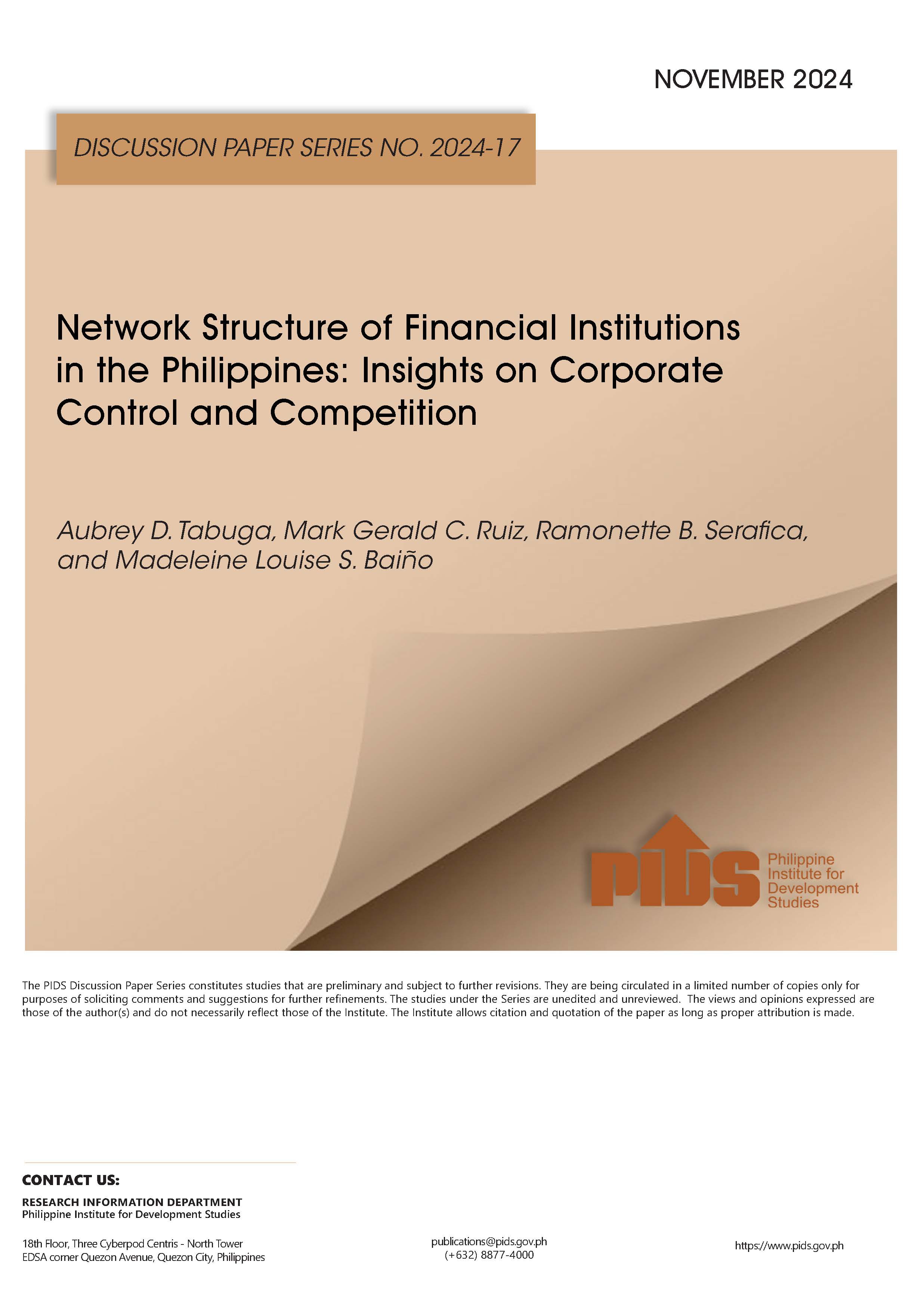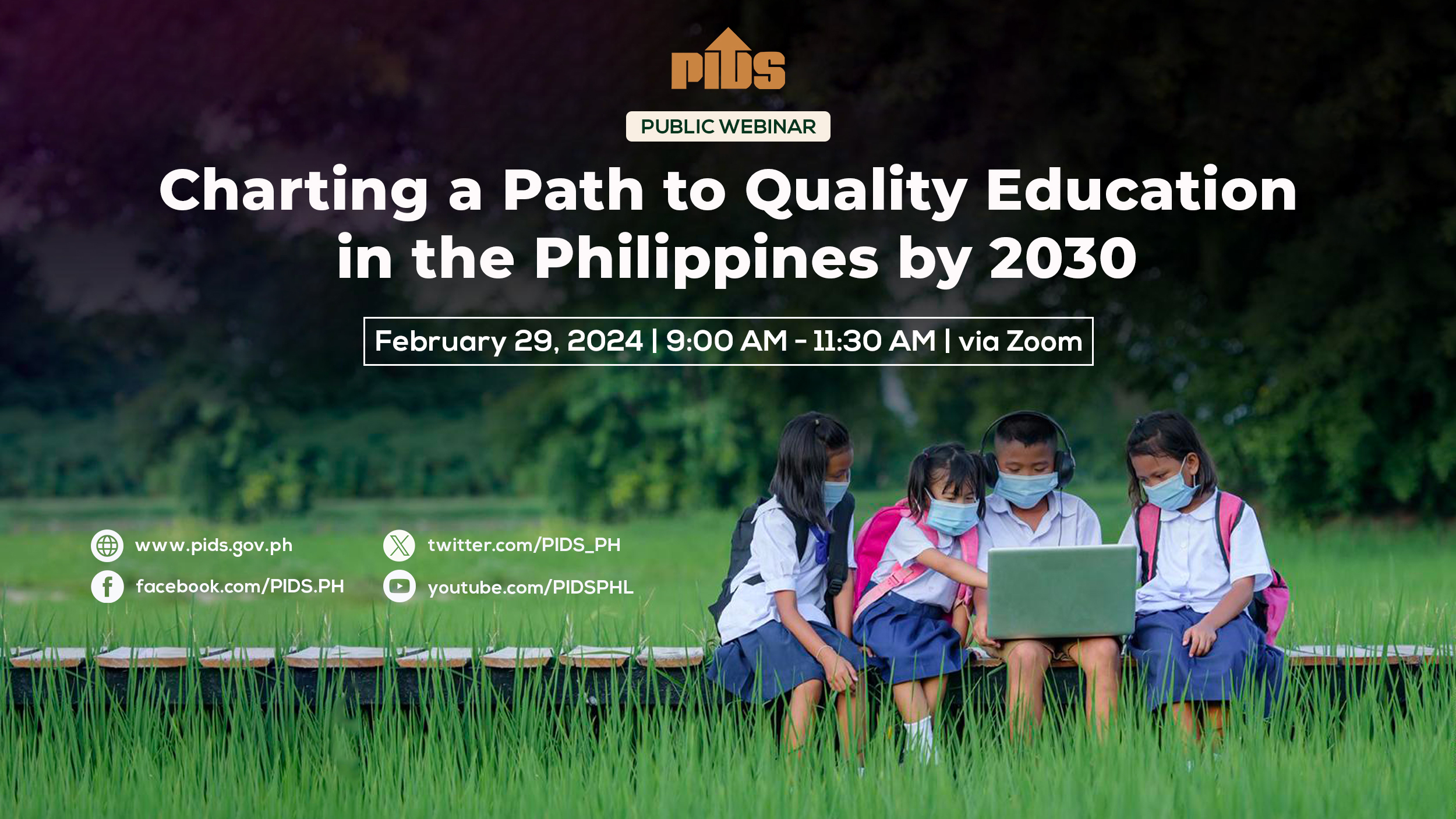QUEZON CITY, June 2 - Despite the significant gains in primary education participation rates, learning gaps remain high among primary and secondary level students. Increased government spending in education, as well as the implementation of the K to 12 program are important education sector reforms that set the stage for improved access and better education outcomes for the Filipino youth. However, while these reforms are significant, much is still needed to be done in improving learning outcomes for primary and secondary learners in the Philippines.
On May 24, 2016, the Department of Education (DepEd), Philippine Institute for Development Studies (PIDS), and Innovations for Poverty Action (IPA) Philippines hosted a policy forum on "Evidence in the Education Sector" at the PIDS Conference Room in Centris, Quezon City, to disseminate among key decisionmakers how impact evaluation and evidence can be useful in achieving improved learning outcomes.
Around 60 participants attended the forum from various government agencies, international organizations, academe, and nongovernment organizations.
In his keynote speech, DepEd Assistant Secretary Elvin Ivan Uy stressed that education should enable each person to maximize their potential. He highlighted the need to actively promote the use of evidence within DepEd and that the agency itself should be an active producer of evidence. Meanwhile, NEDA Deputy Director-General Rosemarie Edillon mentioned the pivotal role of evidence in policymaking at the national level. She maintained that each evaluation should address present and future needs in the education sector.
Roundtable discussions as well as panel presentations on topics such as stakeholders in evaluation, enabling learning, and secondary and technical-vocational education comprised the policy forum. Dr. Gilberto Llanto, in identifying champions in impact evaluations, with panel members Dr. Vicente Paqueo, visiting research fellow at PIDS, and Mr. Roger Masapol, director of the DepEd Planning Service, highlighted important issues such as the usefulness of impact evaluations in preserving effective programs, the need for greater appreciation of evaluations among all levels in government, and the value of having data publicly available.
IPA Philippines Country Director Nassreena Sampaco-Baddiri moderated the panel discussion on enabling learning where Dr. Aniceto Orbeta, Jr., PIDS senior research fellow, and Assistant Secretary Uy of DepEd presented some critical issues in achieving improved education quality. Discussions were centered on the importance of context of the education system, the possibility of having complementary programs for better outcomes, the role of programs (and evaluation of these programs) in learning, and the need to consider noncognitive competencies.
A panel discussion on technical-vocational education was moderated by NEDA Deputy Director-General Rolando Tungpalan and included presentations from Dr. Emily Beam of the National University of Singapore and Director Catherine Galapon from Technical Education and Skills Development Authority. Key topics include the role of education in building skills, employment, and better quality of life, as well as the value of testing different interventions in order to understand what works and what doesn't work.
PIDS President Gilberto Llanto emphasized that the use of evidence generated by rigorous evaluations will definitely play a significant role in moving the country forward, especially in vital sectors such as education. His closing statement, "The unexamined policy intervention is not worth implementing," captures the importance of evaluations in a nutshell. (PIDS)












